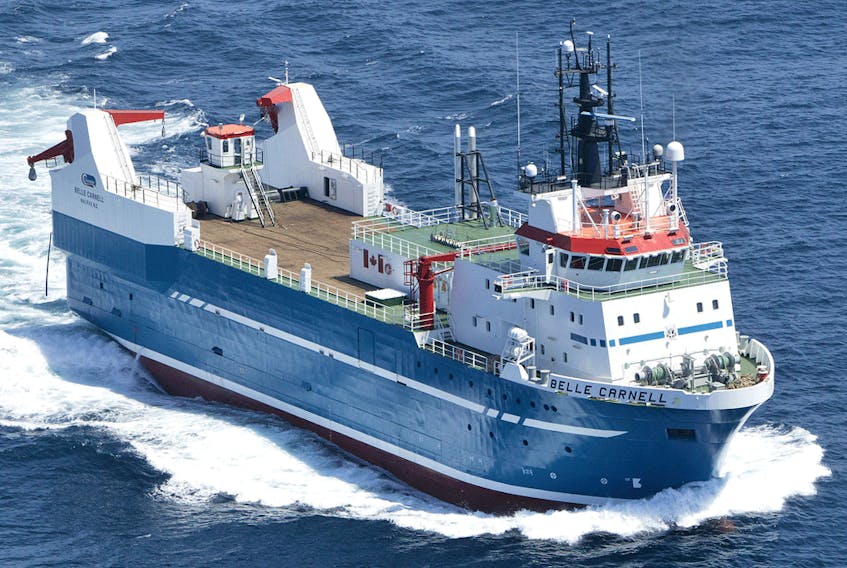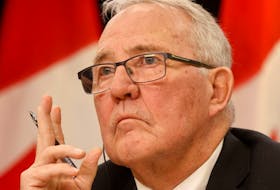The lobster fishery dispute in Nova Scotia followed a predictable narrative – Mi’kmaq fishers asserted their treaty rights to fish out of season while non-Indigenous boats were tied up at the wharf, resulting in threats, arson and assault.
But there was nothing familiar about what happened next.
If there was a perception that Indigenous fishers are out to cripple the commercial fishery, it has been exploded by the news that seven Mi’kmaq First Nations have partnered with B.C.’s Premium Brands to buy Atlantic Canada’s biggest seafood company, Clearwater, in a deal worth nearly $1 billion. Far from undermining the commercial fishery, the Mi’kmaq are now its biggest player.
The bands – led by Membertou First Nation’s enterprising chief, Terry Paul – now own 100 per cent of the Clearwater’s commercial fishing licences. That will require interaction with the independent, non-Indigenous lobster fishers, from whom Clearwater buys around three per cent of the 210-220 million pounds landed annually.
The fishers’ union is not happy, saying that one of the dominant buyers of their catch is being sold at a time of extreme tension over the federally-regulated season. Chief Paul has said that eventually more of the seafood caught under Clearwater’s licences will be done by Mi’kmaq fishers but that any changes will come through attrition and retirement. The situation is going to require careful management on both sides.
But the treaty rights dispute is peripheral to the more substantive fact that an Indigenous coalition has suddenly become the biggest player in Canada’s seafood industry. (Lobster accounted for less than 10 per cent of Clearwater’s sales in the second quarter of the year). The Mi’kmaq are not there as window-dressing – the coalition has put up $250 million, in the form of a 30-year loan from the First Nations Finance Authority (FNFA), a native governed institution that raises money from institutional investors in Canada, the U.S. and beyond. This was a strictly commercial deal, with the price paid 60 per cent above the level it was when the company announced it was engaging in a strategic review.
It positions the Mi’kmaq to follow New Zealand’s example, where the Maori control or influence more than 30 per cent of the commercial fishery.
Jody Wilson-Raybould, the former justice minister, said she likes that the deal was First Nations driven and brought a number of Mi’kmaq bands to come together as one nation and invest. “Chief Terry (Paul) has always been involved in a lot of decisions over legislation to move First Nations forward to being self-determining, rather than having someone else make these decisions,” she said.
The momentous nature of the deal has received little comment but it is likely to be a spur for First Nations across the country to collaborate and get involved with large-scale projects. This is particularly true in the oil and gas sector, where Indigenous ownership is increasingly seen as a way of helping obtain project approval.
Ernie Daniels, president and CEO of the FNFA, said the Clearwater deal will likely be “the first of many.”
Since making its inaugural loan in 2012, the FNFA has raised nearly $1 billion on capital markets. The Clearwater deal is its biggest investment for a single project but Daniels said he is confident the revenue stream is more than enough to service the debt.
The FNFA has become a darling in investment circles, in part because it has had no defaults (bands granted loans have to guarantee their own-source revenue streams as collateral); in part because it is back-stopped by the federal government.
One driving factor has been the active encouragement of governments at federal and provincial level for First Nations to take equity stakes in projects on their land. Indigenous groups are interested in taking stakes in both the federally-owned Trans-Mountain oil pipeline and in TC Energy’s Coastal Gaslink liquified natural gas pipeline. Ontario Power Generation’s call for renewable power proposals stipulates a minimum level of Indigenous participation, as does Alberta Infrastructure’s solar power request for proposals.
The more responsibility we have to look after ourselves, the less responsibility you have
The desire for economic self-sufficiency is universal in a new generation of native leaders, intent on managing wealth, not poverty.
Federal policy has attempted to create flourishing, self-sufficient First Nations since before the Royal Commission on Aboriginal Peoples reported 24 years ago but that goal has often proven elusive. Making it a reality will require foundational political changes, some of which were envisaged by the Royal Commission, such as reconstituting larger First Nations as political entities (The Indian Act broke up 80 or so First Nations into 630 bands, many of which are too small to provide effective self-government.)
This will not be an easy fix – many First Nations have overlapping territory and fishing rights claims, for example. Yet, the Mi’kmaq have just show that greater collaboration between bands of one nation is possible.
Indigenous leaders say their aspirations are often blocked by lack of capital. Under the Indian Act, land cannot be used as collateral to obtain funding. The FNFA has been useful in filling a funding gap but its model requires First Nations to have sufficient own-source funding.
Daniels said the FNFA is “making progress” in its negotiations with the government to either leverage First Nations’ annual funding allocation on capital markets, or transfer more revenue raising capacity to First Nations.
As Manny Jules, chief commissioner of the First Nations Tax Commission, told me, the pitch to the federal government is “the more responsibility we have to look after ourselves, the less responsibility you have.”
It is a powerful argument.
The Clearwater deal suggests that whatever is holding back many First Nations, it is not a lack of ambition.
• Email: [email protected] | Twitter: IvisonJ
Copyright Postmedia Network Inc., 2020









